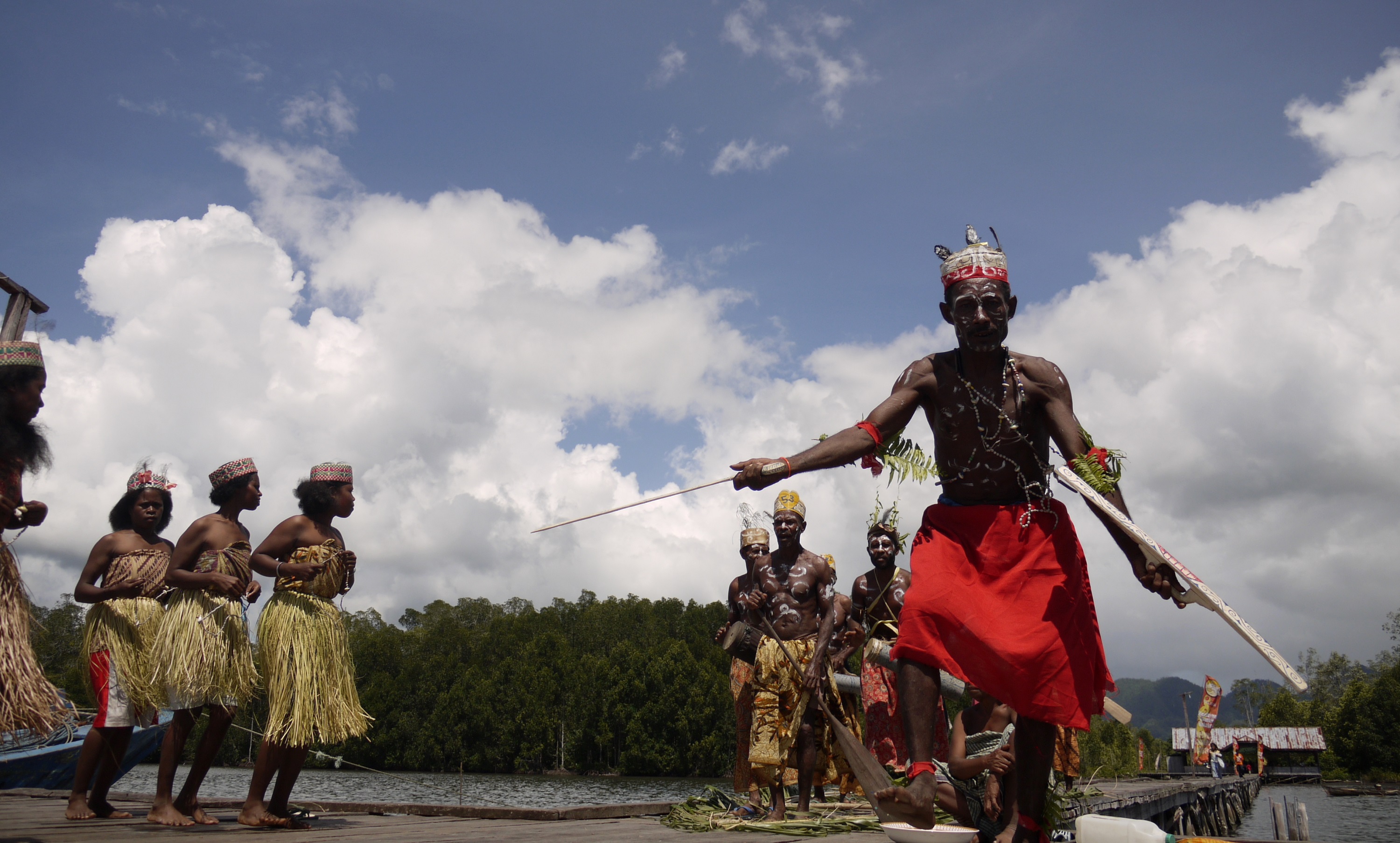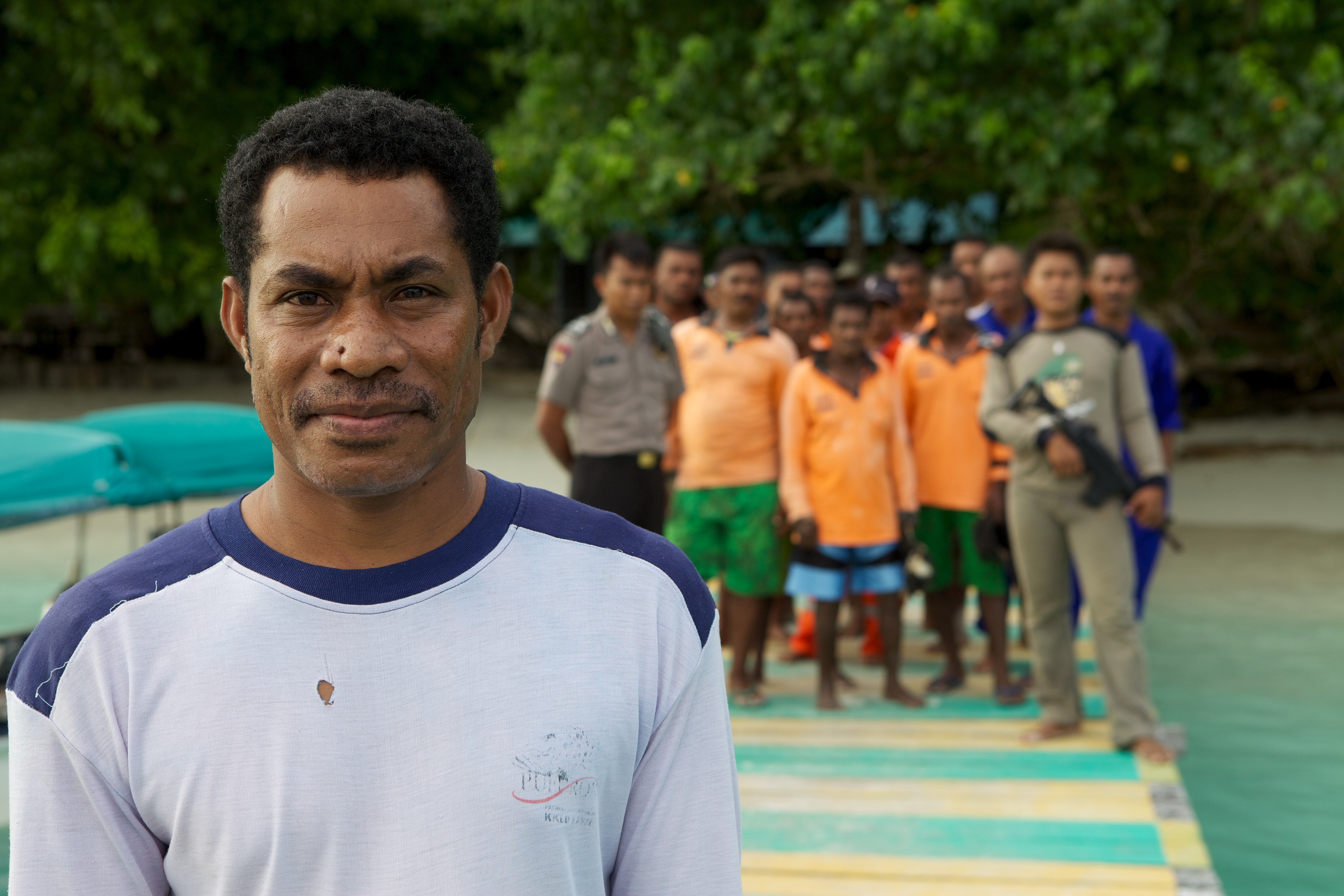Development of ecologically connected co-managed MPA network
Traditional Cermony to declare MPA. Copyright Conservation International.
Joint Patrol Team. Copyright Conservation International, Keith Ellenbogen.
With the MPA network newly declared, the coalition focused on the development of a management system that empowered local communities to actively lead the planning, management, and program implementation of the BHS MPA network. The MPA boundaries as well as the zones within them were based largely on tenure boundaries, rather than administrative ones. To reinforce cultural identity within the MPAs, the Papuan tradition of sasi (seasonal harvest closures) was melded with the modern concept of no-take zones (NTZs) as a way of reinvigorating this important cultural practice. Within each of the MPAs a minimum of 20-30% of all critical habitats are completely closed to exploitation in NTZs to serve as “fish banks”. Areas outside of the NTZs are largely restricted to traditional fishing by local communities and employ sustainable fisheries management practices. The communities and local government were then equipped with the skills and infrastructure necessary to actively manage and enforce their own protected areas. In this way, the MPAs are designed not only to protect critical natural capital, but also explicitly to enhance small-scale local fisheries and to strengthen the tenure rights of Papuan communities.
• Strong community commitment and support
• Government commitment, support and willingness
• Existing legal framework
• Marine tenure in place
• Technical and financial support
Use the conservation process as a means to strengthen the rights and culture of local communities. The MPAs were delineated using customary tenure boundaries rather than solely administrative ones. Each of the locally declared MPAs was first pronounced through a local ceremony by local council of traditional leaders.
The joint patrols include both community members and police officers, with the community members bringing traditional authority and manpower and the police officers adding an additional level of legal authority and training. The patrols use a system of “rolling” participation in which individuals are appointed by village chiefs to a two-week "tour of duty", after which they are replaced by a fresh team of villagers. In this way, over the course of a year, the majority of adult males in a given village will have dedicated at least two weeks to patrolling their MPA, during which time they invariably develop a stronger sense of understanding and ownership of the MPA.


